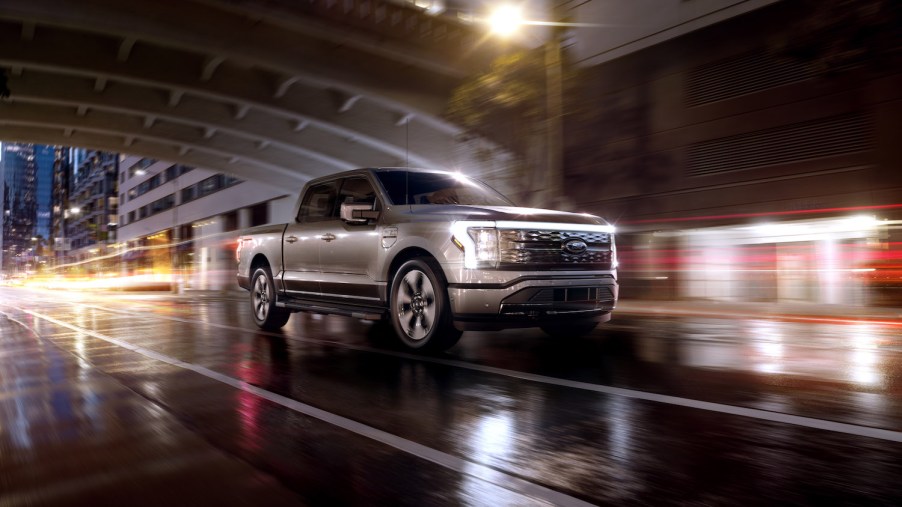
Ford’s Ramping up Electric Truck Production: Announces Plans for 4 New Factories
With the Ford F-150 Lightning taking the electric truck world by (lightning) storm, Ford is doubling down on the future of electric trucks. On Monday, the brand announced new plans to expand its electric truck facilities. With plans to build four new plants, all of them will be geared toward electric trucks. So let’s take a look at Ford’s proposal, and how it may shape the electric car world through the next few years.

Ford is spending $11.4 billion on new electric car and truck facilities
After sinking $100 million into a new battery research facility, Ford is spending $11.4 billion on four new plants. In an effort to expand their electric vehicle production, three of the factories will build electric car batteries facilities, and one factory will build electric trucks. The expense, according to The New York Times, is the single largest in the company’s 118-year history.
Not only will the factories bring electric cars to America, but they’ll bring jobs to America. Two of the battery plants will be located in Tennessee, as well as the electric truck manufacturing facility. The remaining battery plant will be built in Kentucky. And altogether, the plants will create over 11,000 jobs.
That electric track facility will be used solely to build Ford F-150 Lightnings, with no new electric trucks announced as of now. On top of that, Ford has already announced a second-generation F-150 Lightning, and the company aims to build over one million electric vehicles in the second half of the decade.
It’s a fast transition, and one many people are still trying to understand. But even with these efforts, established automakers like Ford and GM are struggling to compete.
Tesla has a deathgrip on the electric car market

Ford currently has two electric vehicles on the market: the previously mentioned F-150 Lightning and the Mustang Mach-E. But despite the push for electrification, that’s still half the models that Tesla is currently selling. And right now, Tesla is outpacing Ford by quite a bit.
The Ford F-150 Lightning has amassed over 150,000 pre-orders which, for an all-new electric vehicle, is astounding. But in just the first two quarters of 2021, even amidst car shortages and Covid-19, Tesla has sold over 130,000 cars. In other words, they’re well ahead of Ford in the electric car game, forcing the established automaker to play catchup.
General Motors, who plan to go 100% electric by 2035, has had the electric Chevy Bolt on sale since 2016. And they’ve only managed to sell 100,000 units in five years. So the market is shifting, and Tesla is currently the leader in that sense. However, more shifts are set to shake up the automotive landscape, especially in terms of new government regulations.
Government pushes are putting immense pressure on automakers to shift

In the report from NYT, Gartner analyst Mike Ramsey explained that “The fact they [major automakers] are spending billions of dollars means they’re saying: ‘There’s no turning back. We’re really going to do this.’” This is the case for almost every automaker, each with its own electric car timeline. But the government is doing it share to make sure electric car sales make up 50% of new US car sales by 2030.
On top of that, Biden is implementing tax credits for electric cars built by unionized workers. This little detail is a major win for Ford and the four new facilities they’re building, and a bit of a setback for Tesla, whose workers are not unionized.
There is some trepidation on the subject, as the United Auto Workers union isn’t known for being well organized. Kentucky and Tennessee also bar union membership as a condition of employment. This means workers will have to vote as to whether or not they want to join. And while that’s a whole other can of worms, it’s important to note as more EV factories are constructed.
The transition is happening, and it’s happening fast. Executive chairman, William C. Ford Jr., said in an interview, “the industry is on a fast road to electrification, and those who aren’t are going to be left behind.” Whether demand will meet supply is still in question. But electric cars are coming.


